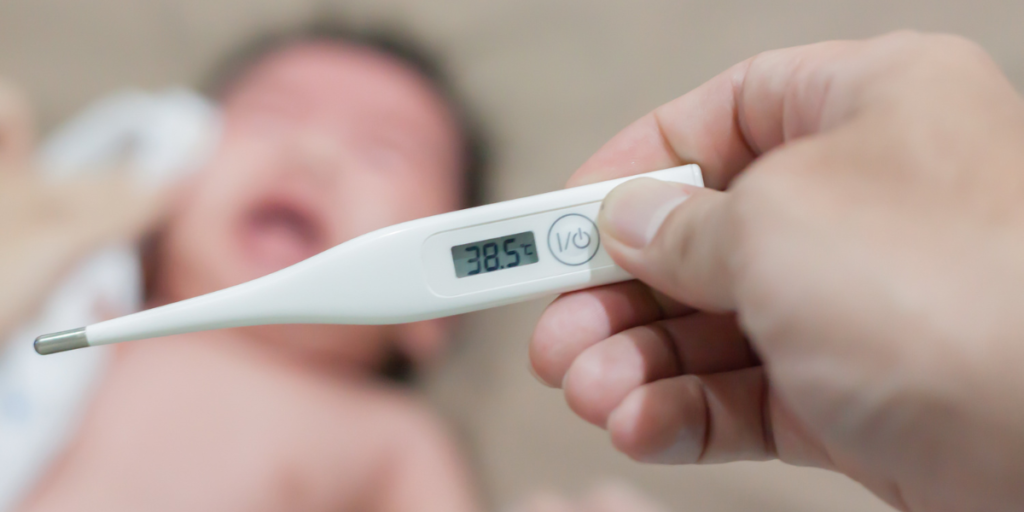
Introduction:
As parents, encountering a fever in our little ones can be a source of concern and anxiety. Fevers are common in children and often signal that their body is fighting off an infection. However, understanding when to worry and how to properly manage fevers in babies, toddlers, and children is crucial for their well-being. In this comprehensive guide, we’ll decode fevers, explore their causes, symptoms, and provide essential tips for fever management at home.
Understanding Fevers:
A fever is a temporary increase in body temperature, usually in response to an infection or illness. In children, a fever is generally defined as a rectal temperature of 100.4°F (38°C) or higher. While fevers can be alarming, they’re often a sign that the body’s immune system is functioning properly to fight off the underlying infection.
Causes of Fevers:
Fevers in children can be triggered by various factors, including:
1. Viral Infections: Common viral infections like the flu, colds, and respiratory infections are frequent culprits behind fevers in children.
2. Bacterial Infections: Bacterial infections such as strep throat, urinary tract infections, and pneumonia can also lead to fevers.
3. Immunizations: Some children may develop a low-grade fever as a normal response to certain vaccines.
4. Teething: Although disputed, some parents believe that teething can cause mild elevations in temperature in babies and toddlers.
Recognizing Symptoms:
Recognizing the symptoms accompanying a fever can provide valuable insights into the underlying cause. Common symptoms associated with fevers in children include:
1. Elevated body temperature
2. Irritability or fussiness
3. Decreased appetite
4. Fatigue or lethargy
5. Cough, runny nose, or other signs of infection
6. Vomiting or diarrhea
Fever Management Tips:
While fevers themselves are usually harmless, they can make children uncomfortable. Here are some essential tips for managing fevers at home:
1. Monitor Temperature: Use a reliable thermometer to monitor your child’s temperature regularly. Rectal thermometers are most accurate in infants and young children.
2. Keep Hydrated: Encourage your child to drink plenty of fluids, such as water, clear broth, or oral rehydration solutions, to prevent dehydration.
3. Dress Appropriately: Dress your child in lightweight, comfortable clothing and use lightweight bedding to prevent overheating.
4. Provide Comfort: Use over-the-counter fever-reducing medications like acetaminophen (Tylenol) or ibuprofen (Advil, Motrin) as directed by your pediatrician to help alleviate discomfort.
5. Seek Medical Attention: Consult your pediatrician if your child is under three months old and has a fever, if the fever persists for more than a few days, or if your child exhibits concerning symptoms such as difficulty breathing, severe headache, or dehydration.

Conclusion:
Fevers in babies, toddlers, and children are a common occurrence and are usually a sign that the body is fighting off an infection. By understanding the causes, recognizing symptoms, and following proper fever management techniques, parents can ensure their little ones stay comfortable and healthy during bouts of illness. Remember to trust your instincts as a parent and seek medical attention if you have any concerns about your child’s fever or overall well-being. With proper care and attention, most fevers in children resolve on their own without complications.

